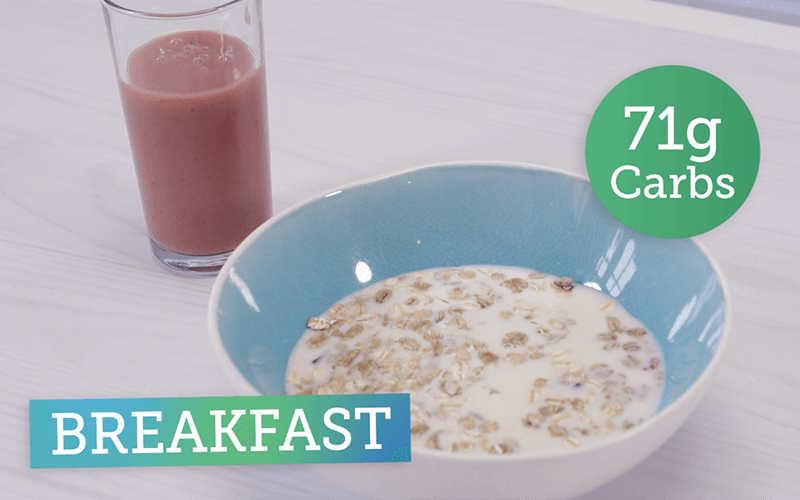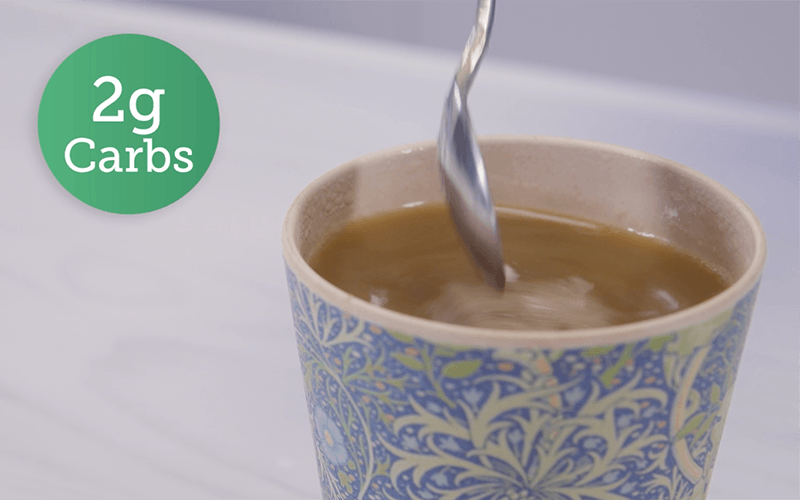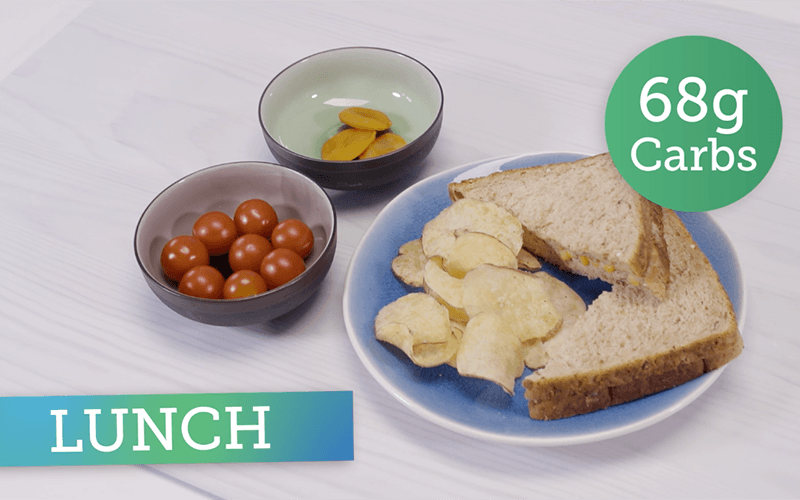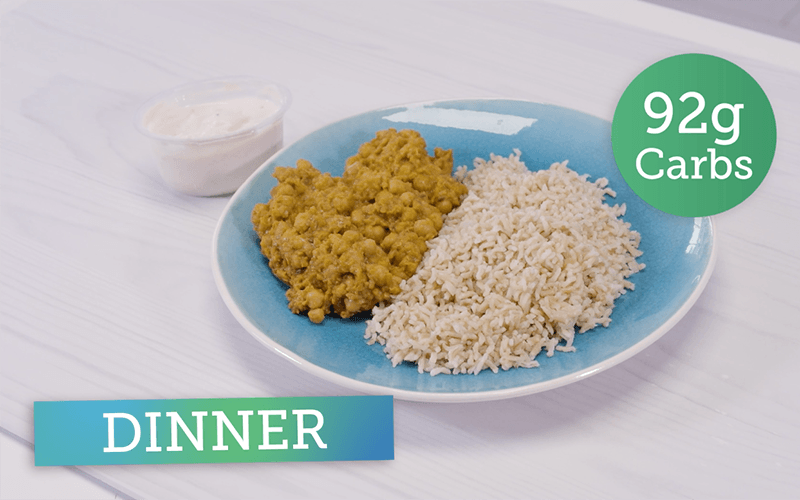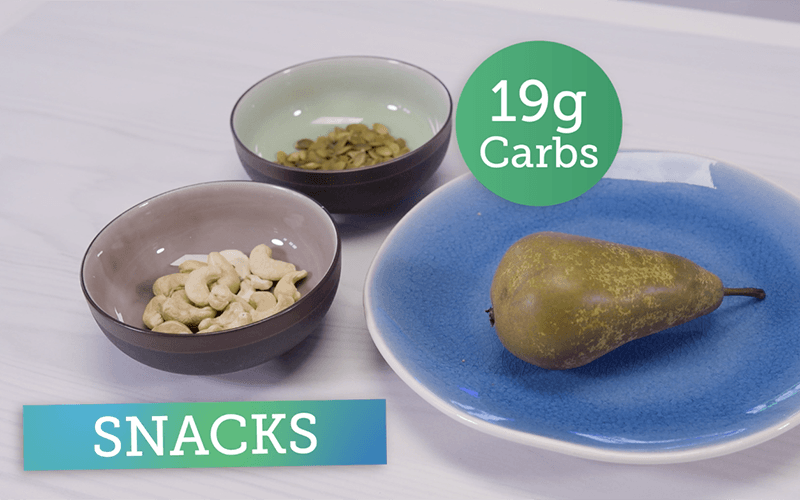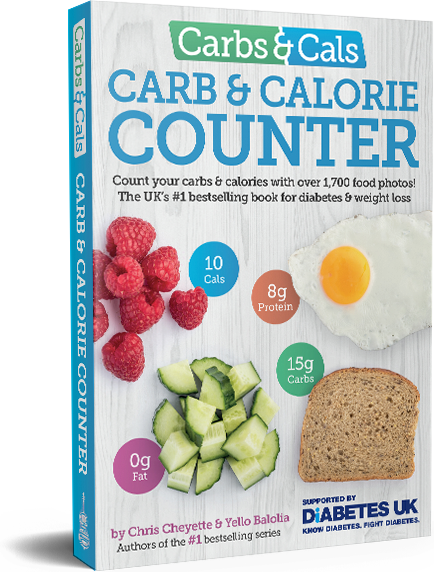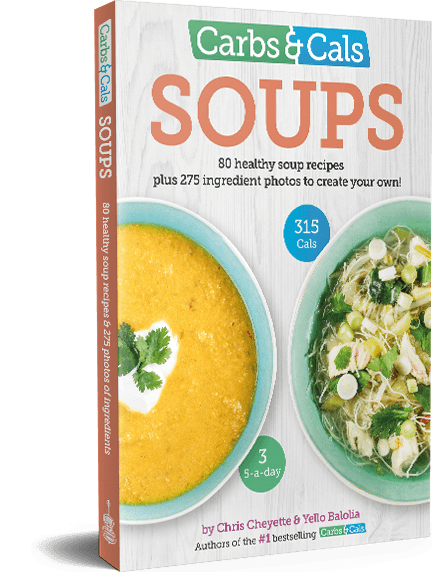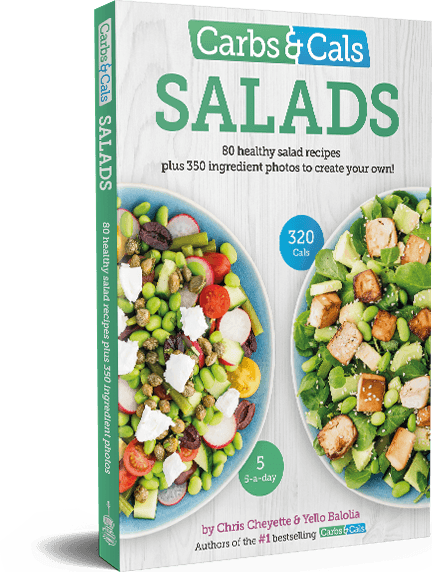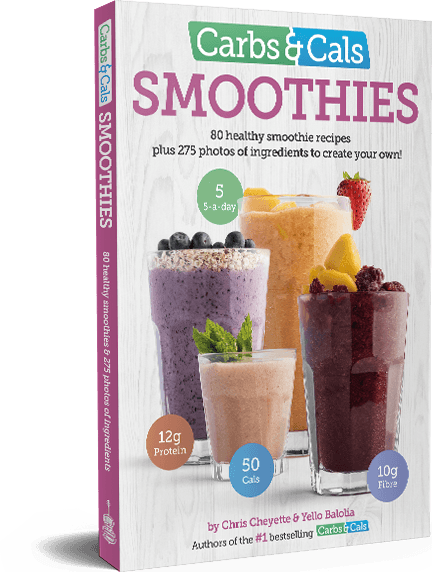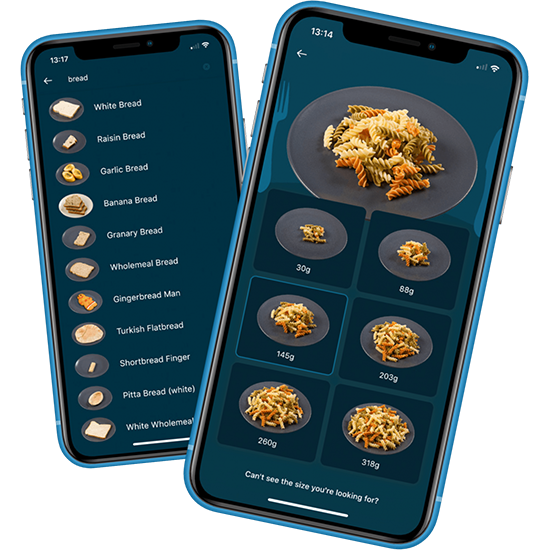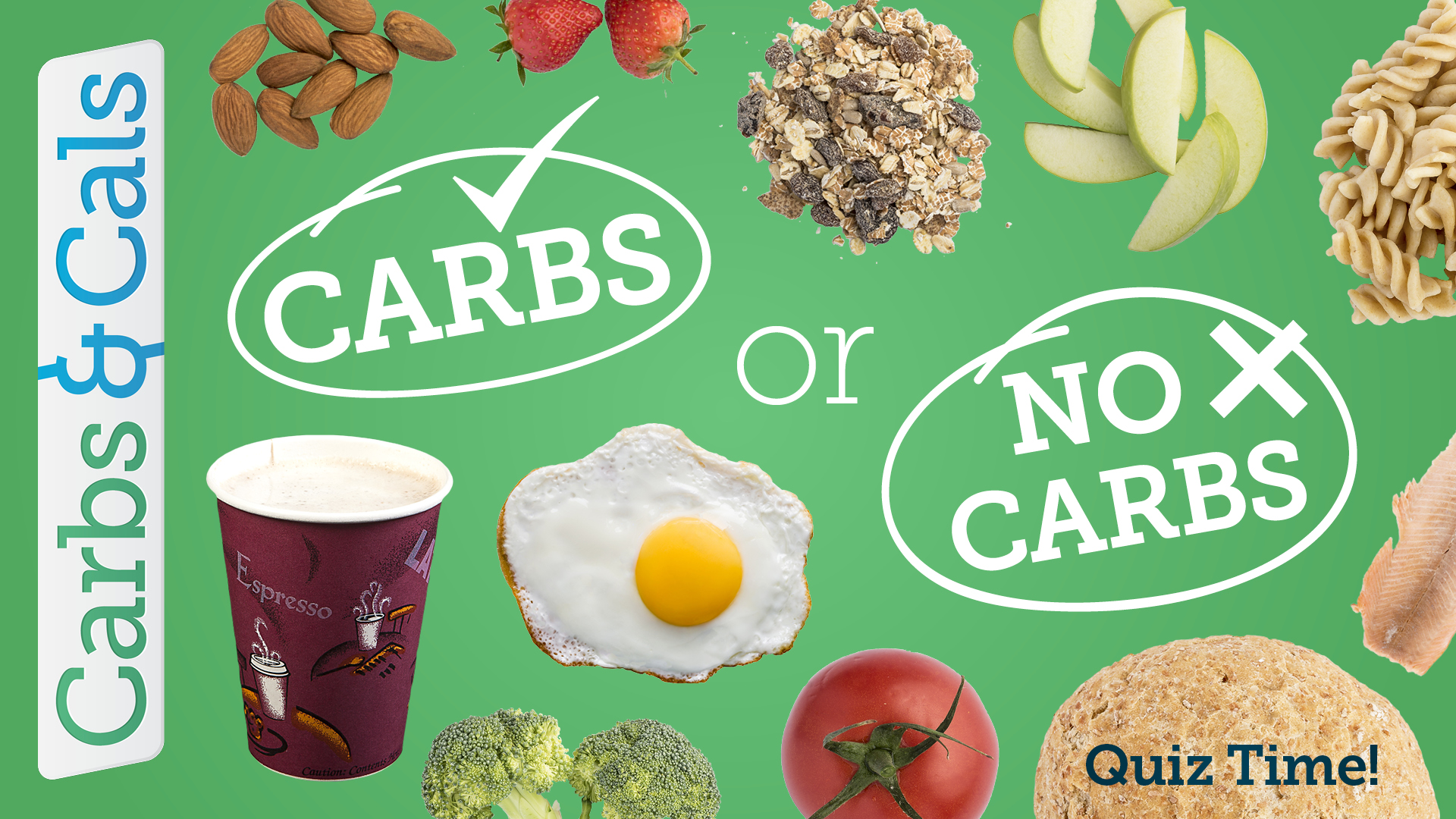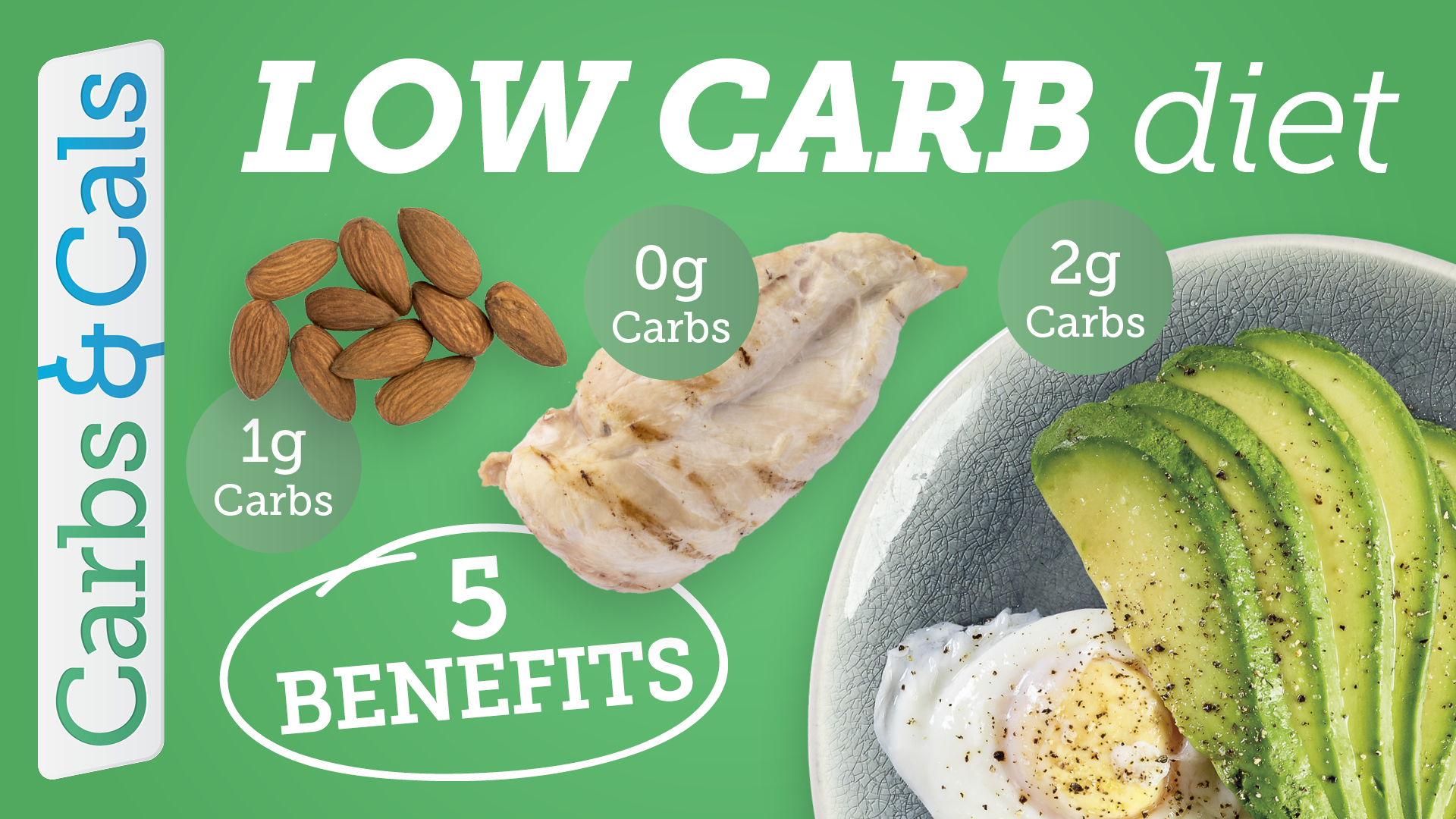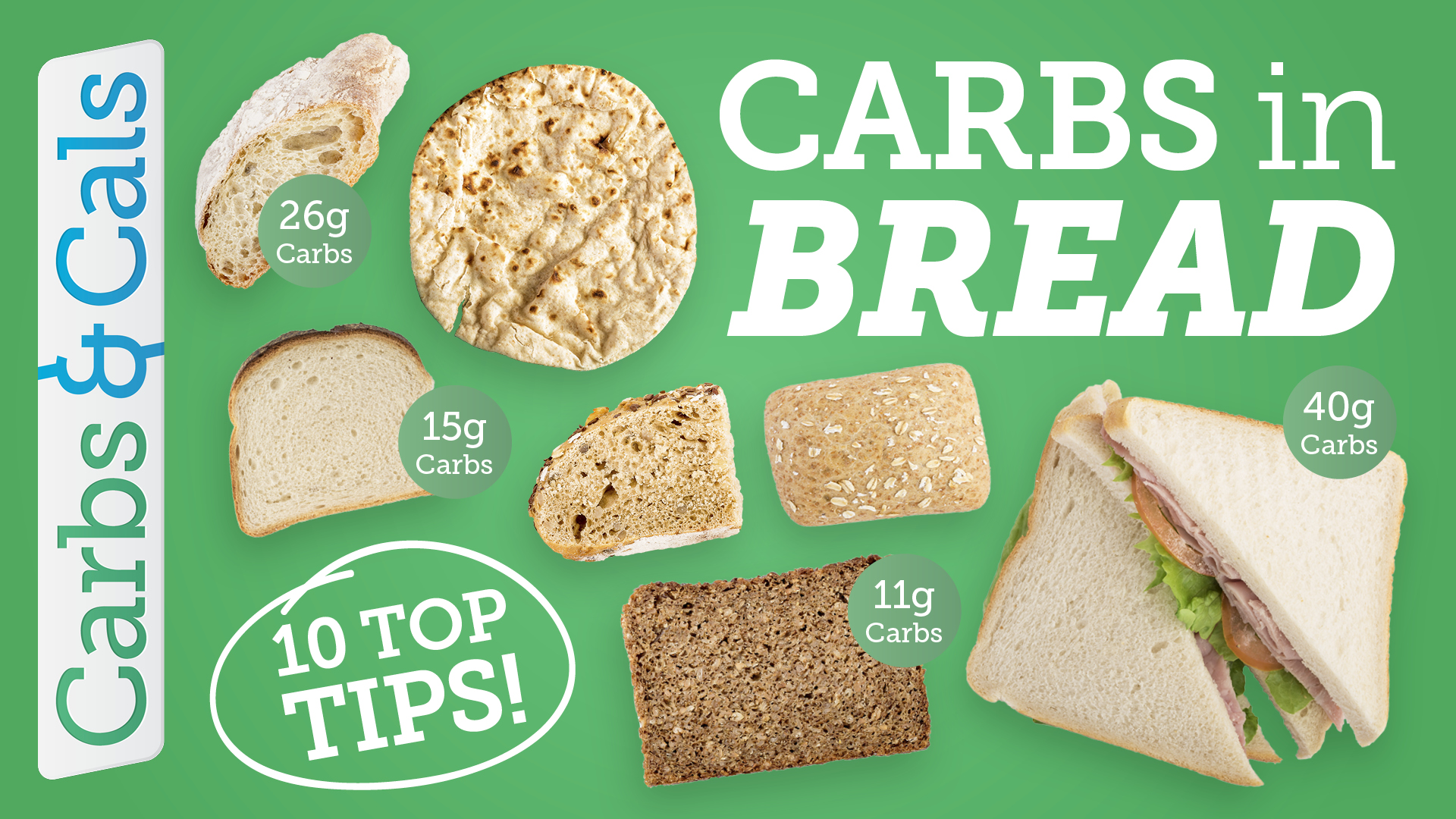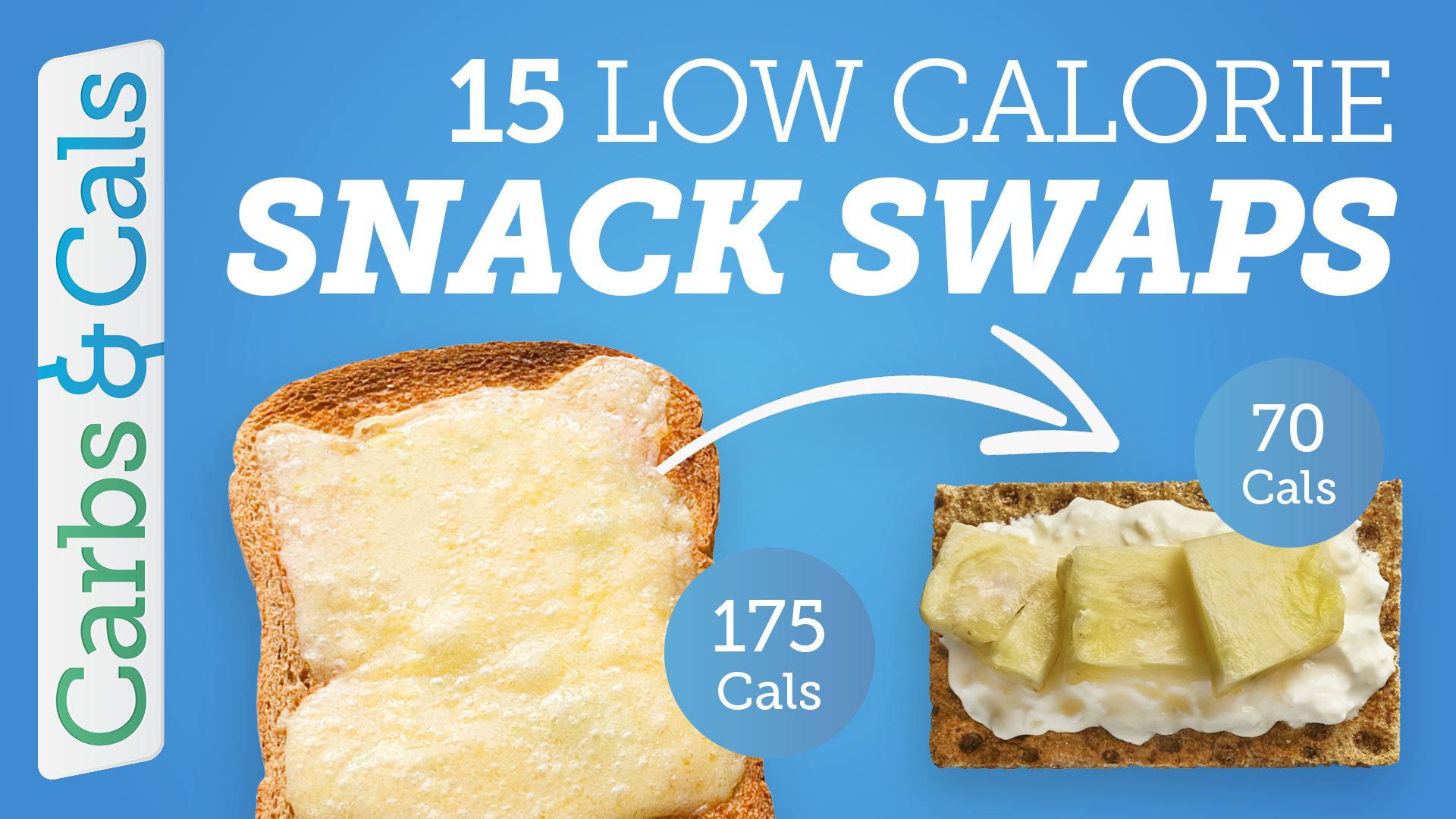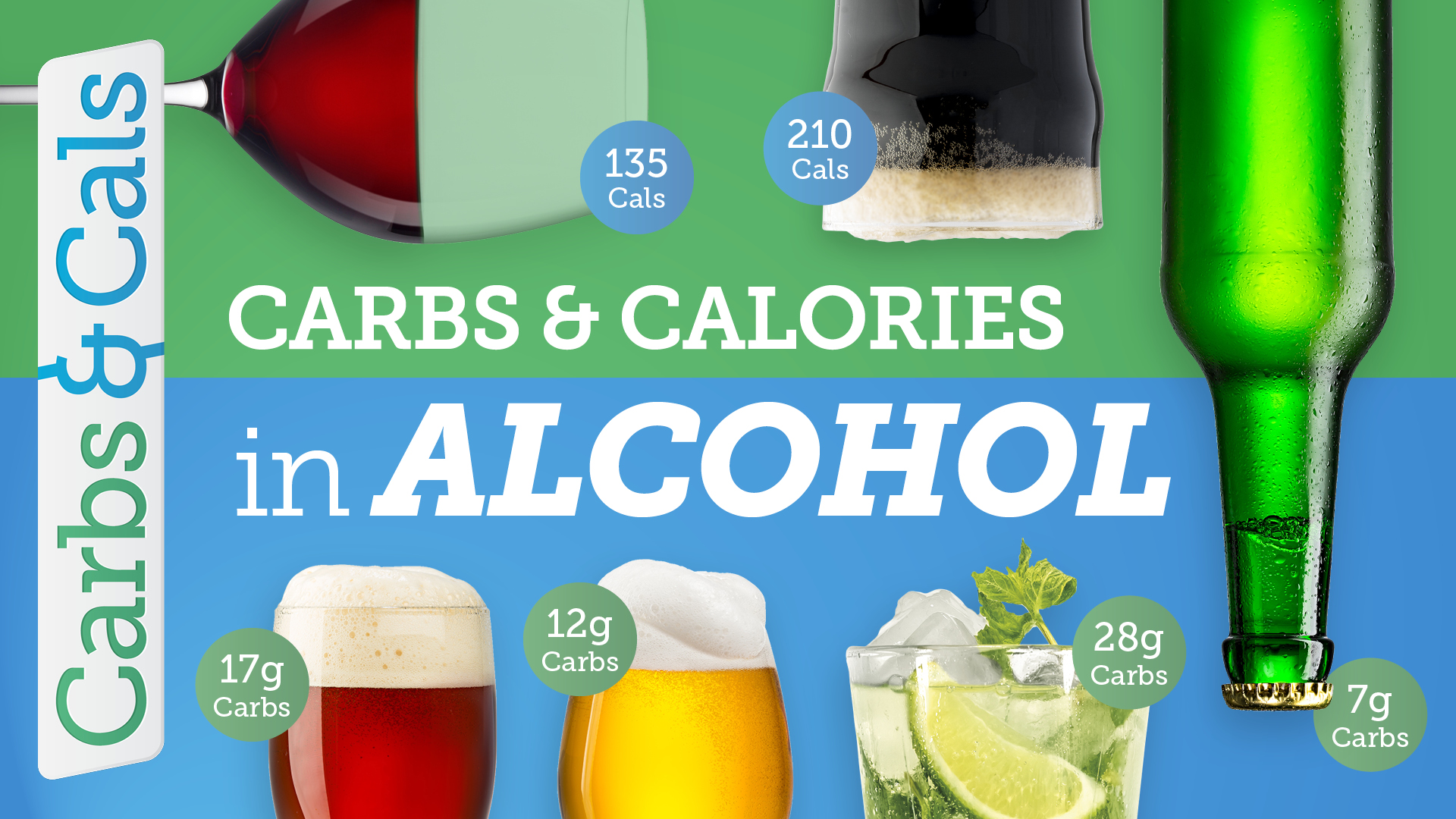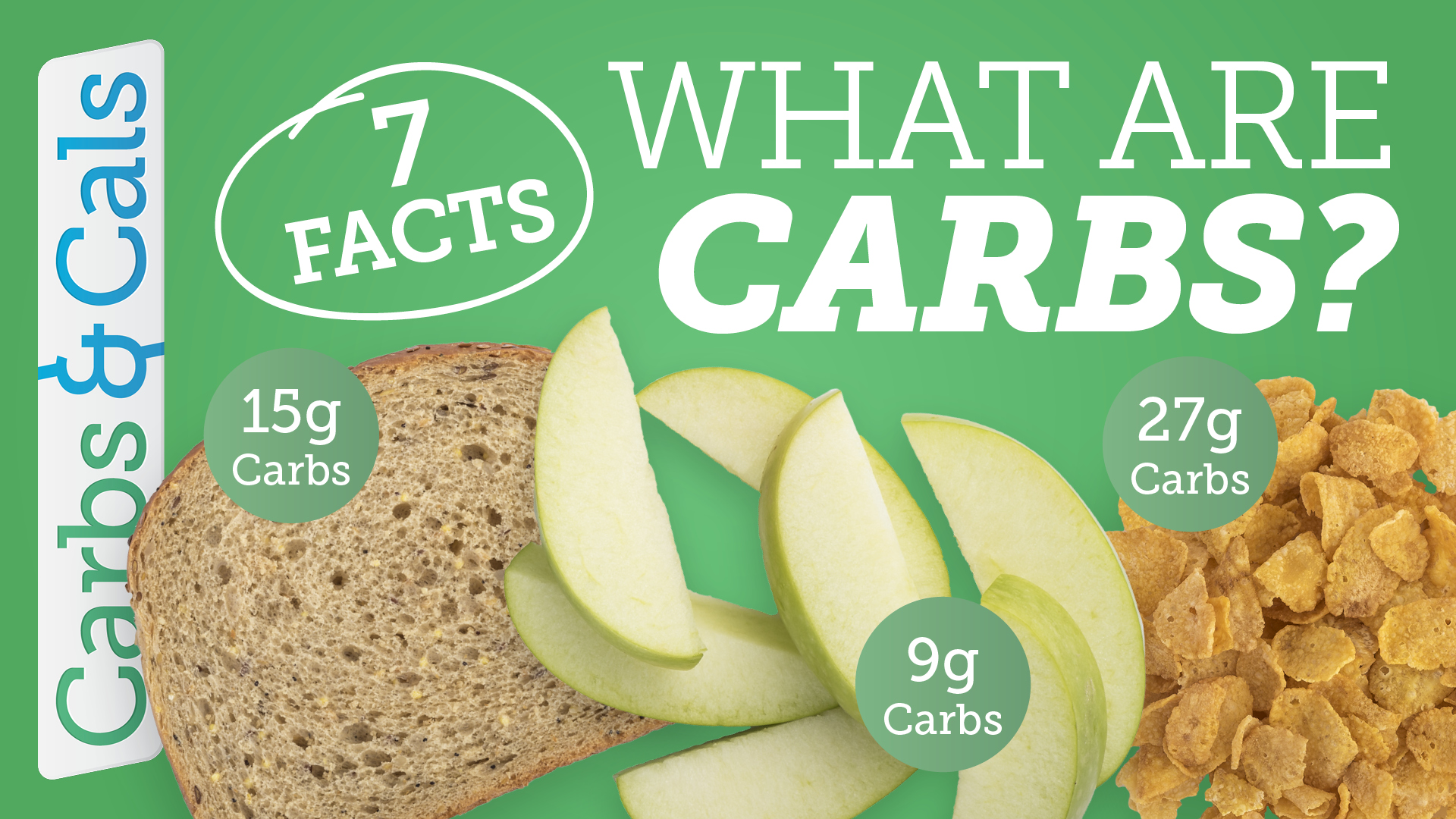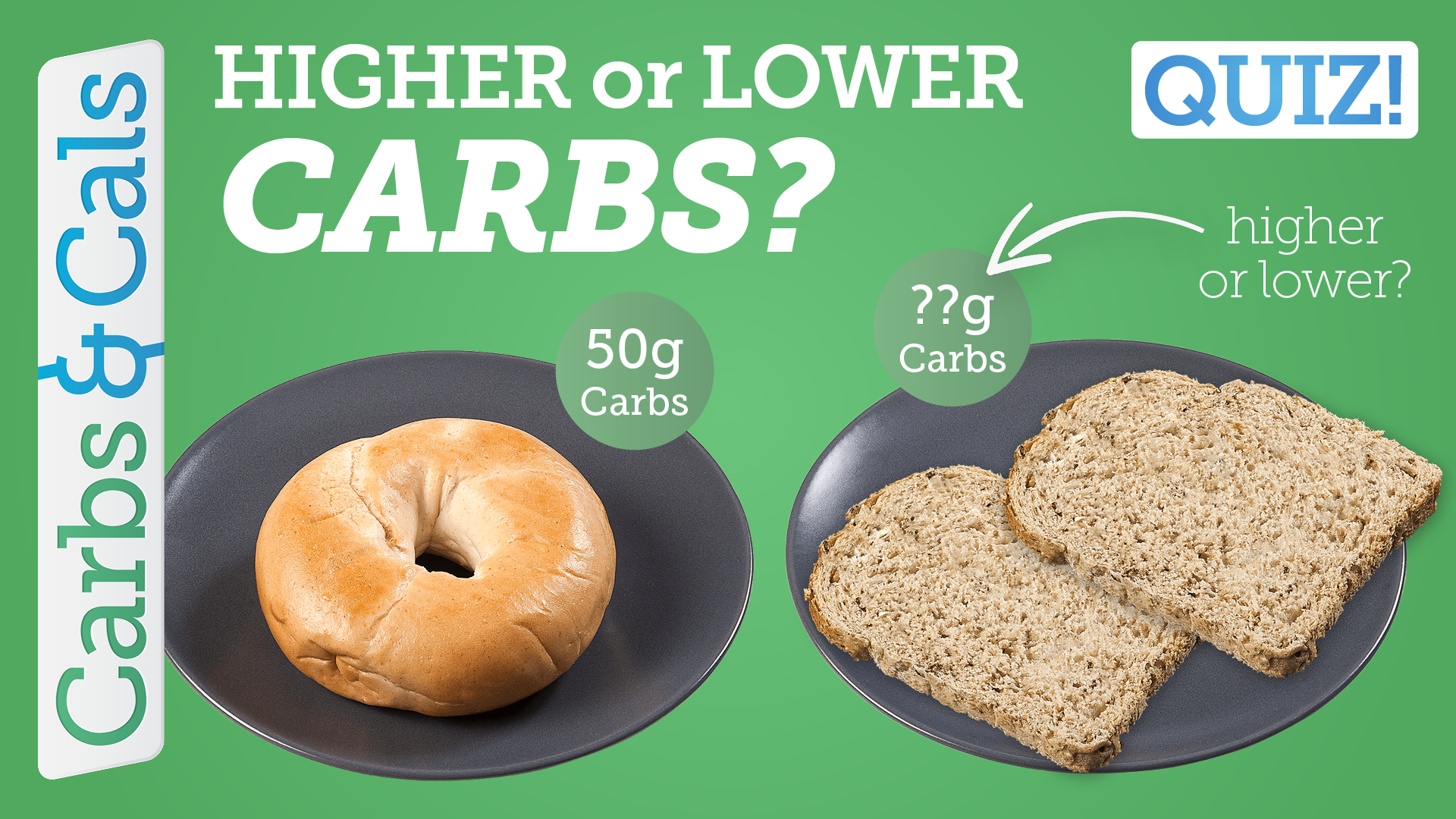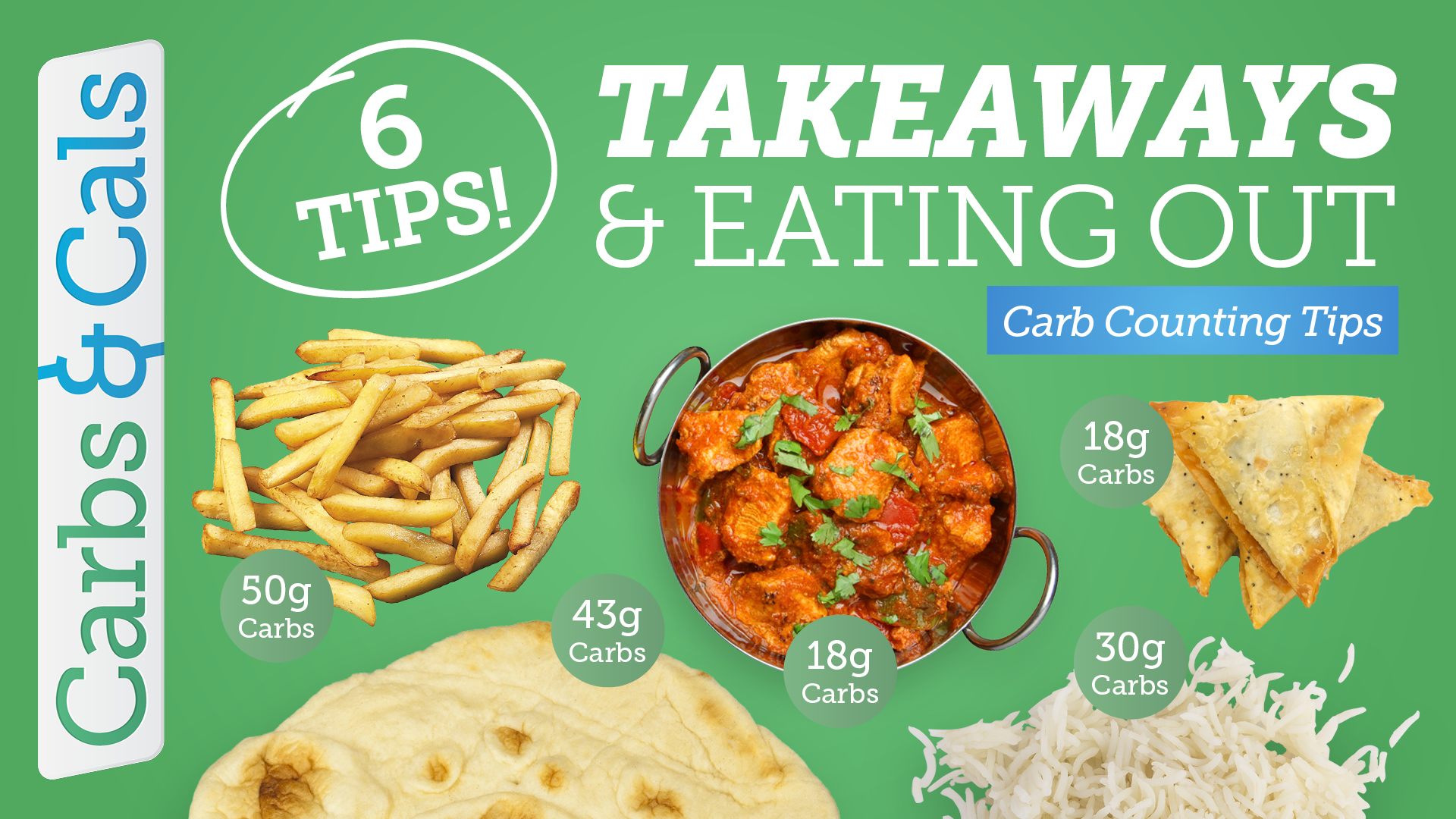How many carbs do I need each day?
Today we’ll run through a sample meal plan, and look at scenarios for an average person, someone choosing to reduce their carb intake, and someone following a calorie-controlled diet – helping you figure out how many carbs are right for you.
National Guidelines
The amount of carbs someone needs each day varies depending on age, gender, weight and physical activity. This means there is no set amount of carbs recommended for everyone. Someone doing frequent exercise for a number of hours each week will need more carbs than someone who is less active.
There is still a lot of debate, but national guidelines recommend around 50% of calories coming from carbs. Some people with diabetes may wish to have a lower intake of around 40%, to help reduce the rise in blood glucose after a meal.
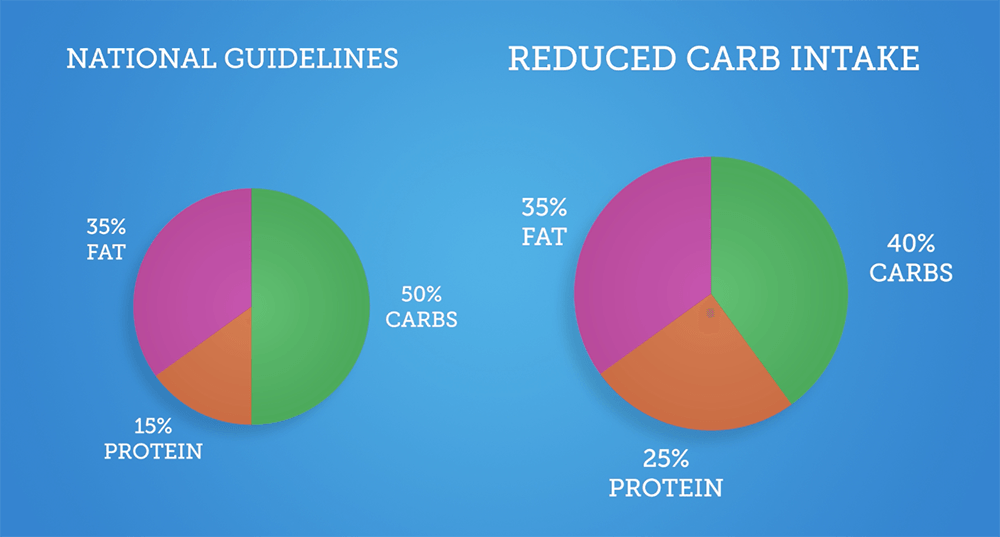
But what does that mean in real life? Here’s our quick guide on how many carbs to eat each day. Let’s look at the numbers before we get to the meal plan.
Daily Carb Intake (3 scenarios)
Take an adult weighing 70kg who is looking to maintain their weight: They need around 2,000 calories per day. If 50% of this is coming from carbs, which have 4 calories per gram, they’ll be aiming for 250g of carbs per day.

The next scenario is for someone choosing to have fewer carbs. Changing the proportion to 40% of calories coming from carbs results in 200g of carbs per day.

And the third scenarios is someone looking to lose weight on a calorie-controlled diet. If they are aiming for 1,400 calories at 50% carbs, each day they would be consuming 175g of carbs.

You can use the BMI and calorie requirement calculator to work out your personalised daily carb amount.
Meal Plan (250g carbs per day)
And what does all this look like in practice? Here’s how you might achieve 250g carbs in a day.
For breakfast, a small bowl of muesli with semi-skimmed milk and a 150ml smoothie comes to 71g carbs. A mid-morning cup of coffee with a splash of milk and no sugar, is just 2g carbs.
At lunchtime, a tuna sweetcorn sandwich with cherry tomatoes, small packet of crisps and 3 dried apricots for extra fibre, adds 68g.
Chickpea curry with brown rice and a fruit yogurt pot is a further 92g carbs for dinner. And snacking on a pear, handful of cashews, and pumpkin seeds during the day adds another 19g.
That brings the daily total to 252g of carbs, just under 2,000 calories, with sufficient protein, and hitting the recommended target for fibre and 5-a-day.
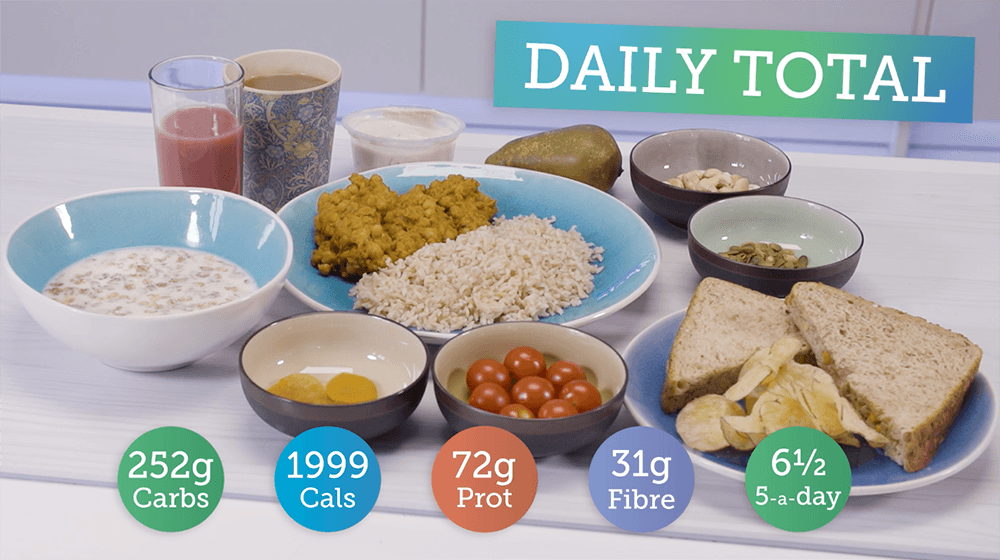
What about Low Carb Diets?
You may have heard people talk about “low carb diets”. This phrase can be confusing and there is no agreed definition in healthcare, the media or the general population. The most recognised definition for a low carb diet is 50g to 130g carbs per day.

We’ve covered this topic in more detail, in a separate video: LOW CARB DIETS: 5 benefits of curbing carbs!
Quality of Carbs
Finally, it’s important to consider not just the quantity of carbs, but the type and quality too. Instead of white bread, white rice, and foods high in sugar, choose wholegrain varieties, and plenty of fruit and vegetables. These contain more fibre, antioxidants, vitamins and minerals, which are linked to a healthy gut, and a lower risk of heart disease and some cancers.
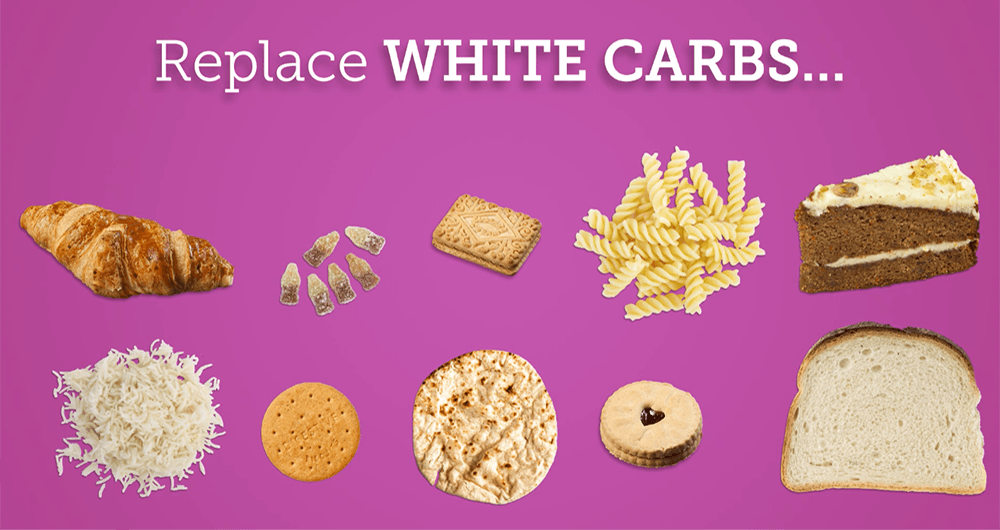
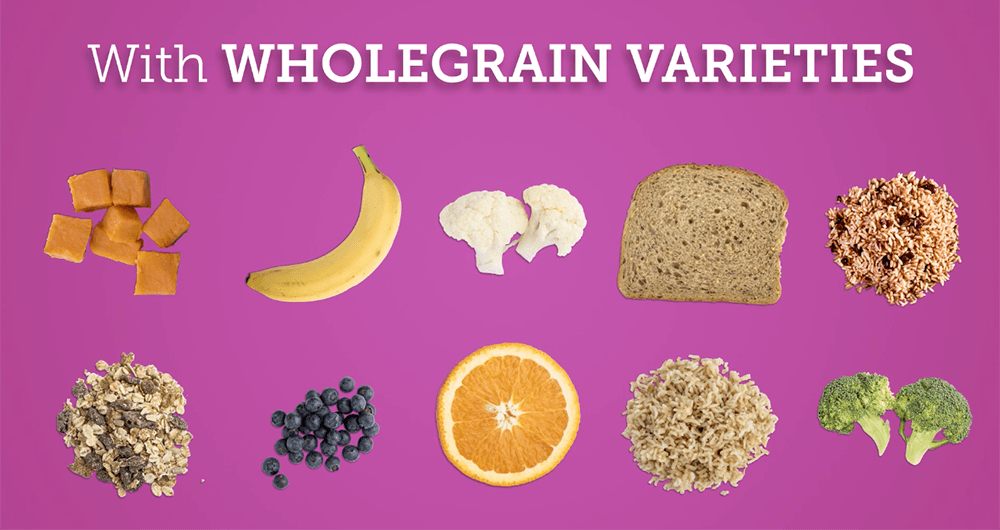
Monitor your Carb Consumption!
You can monitor your daily carb consumption using the Carb & Calorie Counter book and Carbs & Cals app. Plus plenty of carb-counted recipes in the Soups, Salads and Smoothies books.
Subscribe to the YouTube channel
Make sure you subscribe and press the bell, so you don’t miss any videos.

